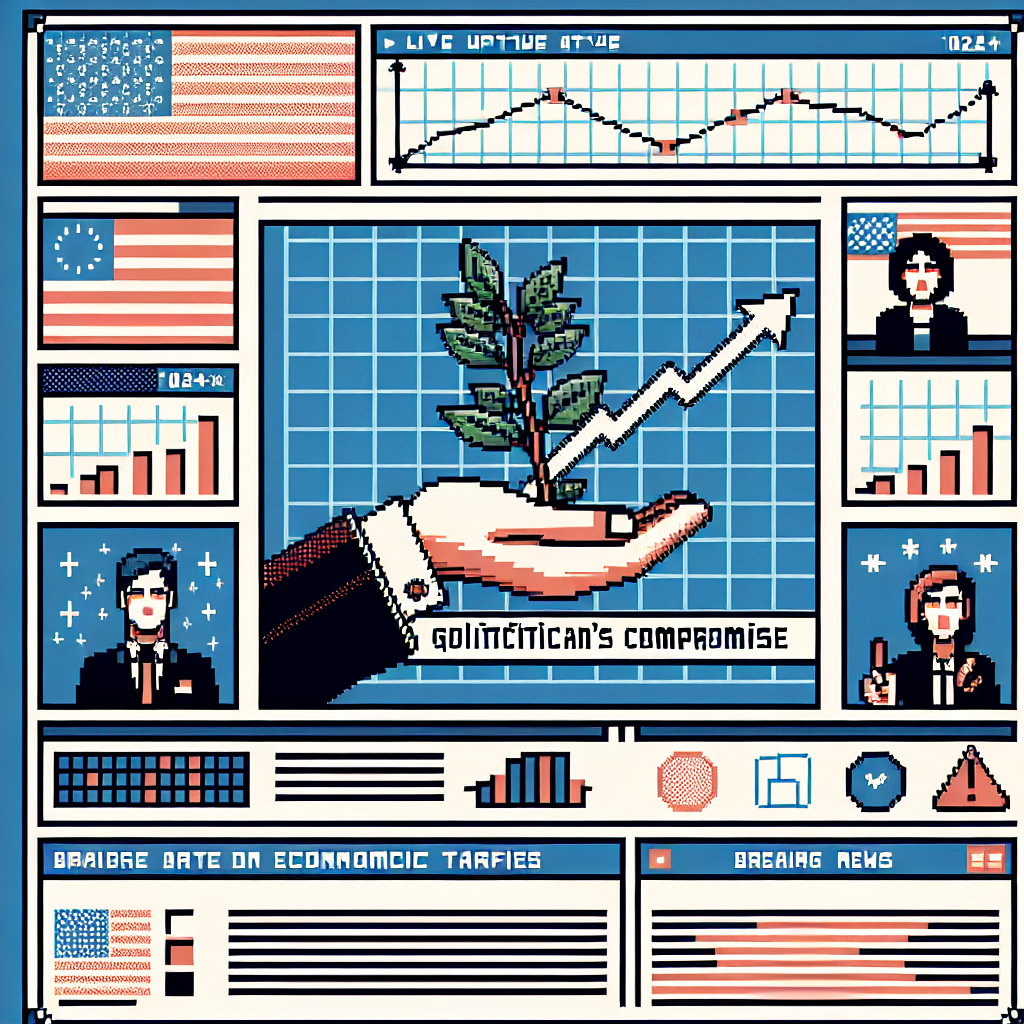Stock futures jump on hope of possible Trump compromise on tariffs: Live updates - CNBC | Analysis by Brian Moineau
**Title: A Ray of Sunshine in the Trade Talk Clouds: Stock Futures Soar Amid Tariff Compromise Hopes**
In the ever-churning seas of global trade, even a whisper of compromise can send ripples far and wide. Late Tuesday, U.S. Commerce Secretary Howard Lutnick teased a potential breakthrough that has the financial world buzzing: the prospect of the United States meeting Canada and Mexico "somewhere in the middle" on tariffs. This glimmer of hope was enough to send stock futures jumping, a testament to the power of diplomacy in calming the often volatile waters of international trade.
The hint of compromise comes at a crucial time. With trade tensions having simmered for years, the global economy has been eagerly awaiting signs of resolution. The tariffs in question have been a sticking point, not just affecting the economies directly involved but also sending shockwaves through global markets. The mere suggestion that these tensions might ease was enough to buoy investor spirits, highlighting the interconnected nature of today's economic landscape.
On the surface, this development might seem like just another headline in the ongoing saga of trade negotiations. But look a little deeper, and you'll find a narrative rich with implications. For one, it signals a potential shift in the Trump administration's often hardline stance on trade. While President Trump has long championed the idea of America-first policies, this move could indicate a willingness to adopt a more conciliatory approach, at least with North American neighbors.
It's also worth noting how this potential compromise aligns with wider global trends. Across the Atlantic, the European Union has been grappling with its own set of trade challenges, particularly with Brexit looming over the continent like a storm cloud. The EU has been keen to establish new trade relationships and solidify existing ones, mindful of the need for economic stability in turbulent times. A U.S. move towards compromise could set a positive precedent, encouraging other nations to seek collaborative solutions rather than confrontational standoffs.
Howard Lutnick, the man behind the tantalizing suggestion, is no stranger to steering through choppy waters. As a seasoned leader, he's known for his pragmatic approach to problem-solving. His hint at a middle ground approach reflects a strategic understanding that trade wars have no real winners and that compromise is often the most viable path forward.
Beyond the realm of trade, this development resonates with other global narratives of compromise and cooperation. Take, for instance, the recent international efforts to address climate change. The need for countries to find common ground on reducing emissions echoes the dynamics of trade negotiations. In both arenas, the message is clear: global challenges demand collective solutions.
While it's too early to pop the champagne, the market's response is a reminder of the power of optimism. Investors, like the rest of us, are eager for signs of progress, for those moments when the clouds part and light breaks through. It's a sentiment not just confined to stock markets but one that reverberates through boardrooms, trading floors, and dinner tables around the world.
In conclusion, the news of a possible tariff compromise is a small but significant step towards a more harmonious global trade environment. Whether this will lead to lasting change remains to be seen, but for now, it offers a welcome respite in an era often marked by division. As we watch and wait, one thing is certain: in the world of trade, as in life, a little compromise can go a long way.
Read more about AI in Business

